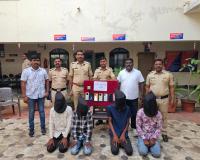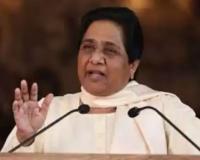- Maharashtra
- Mumbai
- Ancient Indian outreach was for knowledge sharing, not conquest: RSS chief
Ancient Indian outreach was for knowledge sharing, not conquest: RSS chief
On

Mumbai, Agency
Rashtriya Swayamsevak Sangh (RSS) chief Mohan Bhagwat today asserted that ancient Indians travelled across the world — from Mexico to Siberia — to disseminate scientific and cultural knowledge without engaging in conquest or religious conversion.
Addressing a gathering here during the launch of the Arya Yug Vishay Kosh encyclopedia, Bhagwat said India’s ancestors shared wisdom with goodwill and unity rather than with motives of domination.
Drawing distinctions between historical invaders, Bhagwat remarked that while many plundered India’s wealth and enslaved its people, the last colonisers caused deeper harm by “looting Indian minds.”
This psychological plunder, he observed, made Indians forget their inherent strengths and their potential to guide the world through spiritual and scientific knowledge. He said that India, as the land of Aryavrat, still retains its spiritual depth, scientific ability, and moral strength.
The RSS chief strongly criticised what he termed the “Macaulay Knowledge System,” asserting that colonial education had distorted Indian thinking and replaced native intellectual confidence with foreign mindsets. He stressed the need for complete liberation from this influence to rediscover India’s knowledge traditions, while also recognising that beneficial global developments should be studied and selectively adopted.
In a reflective section of his address, Bhagwat cited modern scientific understanding of perception, explaining that human experience through the five senses is filtered by the mind and may not reveal absolute truth. Referring to his own veterinary background, he illustrated this by noting that humans see seven colours, dogs see two, and chickens see three—demonstrating the relativity of sensory perception.
He concluded that the comprehension of ultimate truth requires transcending physical and mental limits, a notion he said modern science increasingly acknowledges.
The event also marked the formal unveiling of the Arya Yug Vishay Kosh, an extensive encyclopedia on Indian knowledge systems prepared by Ahmedabad’s Gitarth Ganga Research Institute.
Conceived by spiritual leaders Munishri Mohitvijayji and Jainacharya Yugbhushansuriji, the work represents over three decades of research. The project plans to publish 30 volumes covering 108 primary subjects and 15,000 sub-topics within the next decade.
The first volume, released in May 2024, covers four major subjects and 159 sub-topics, drawing authentic references from more than one thousand Jain texts, alongside classical sources such as the Bhagavad Gita, Patanjali Yoga Sutra, and Nyaya Praveshak Sutra.
Each topic is presented through eight categories, including definition, etymology, unique attributes, and conceptual outlines. The initiative aims to counter growing materialism and atheism by preserving and transmitting traditional knowledge to future generations.
Bhagwat concluded by asserting that India is capable of guiding a world “headed towards destruction,” urging reconnection with indigenous knowledge systems while preserving cultural roots in the midst of modern progress.
000
About The Author
Related Posts
Latest News
03 Nov 2025 09:37:45
A potential disaster was narrowly averted at the Balgandharva Rangmandir (Theatre) in Pune on Sunday night following a malfunction and...










